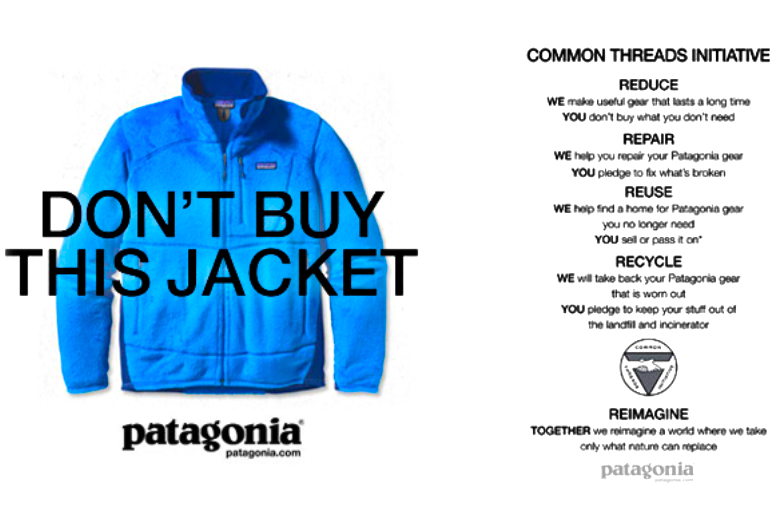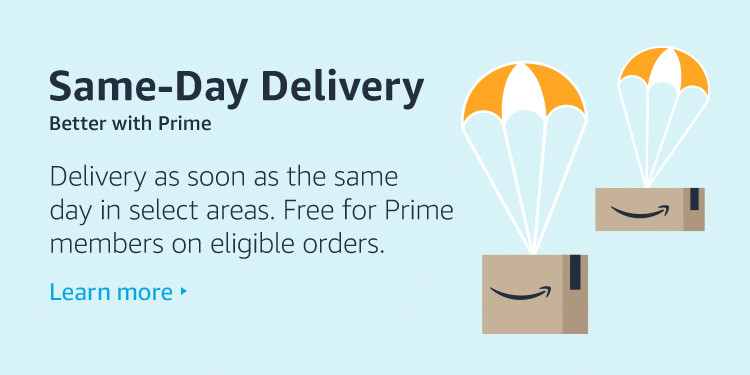Core Brand Values: Why They Are Key to Differentiating Your Brand

What do Coca-Cola, Disney, and Nike have in common? Besides being successful businesses, they all have strong core brand values. Core brand values define what your company is about and help create a unique identity for your business. This makes your core brand values key to differentiating your brand from the competition.
But, why do core brand values matter? And how can you use them to stand out?
In this blog, we’ll discuss what core brand values are and how to use them to differentiate your brand. We’ll even provide examples of companies that are doing it right and standing out among their competitors.
What Are Core Brand Values?
The most iconic companies of our time all have recognizable brands. What sets these business owners apart is not just their products or services, but the core brand values that drive everything they do.
So what are core brand values? Whether you’re creating a new brand or going through a rebrand, core brand values make up the brand guidelines that shape a company’s culture and define its identity. They guide all decision-making, from product development to marketing campaigns. Core brand values are not something that can be copied or bought; they must be carefully crafted and communicated to all people in the organization.
Let’s take a moment to differentiate between brand mission, vision statement, and core values.
- Brand mission: a brief statement that describes what the company does.
- Vision statement: a more long-term view of what the company wants to achieve.
- Core brand values: the principles that guide all decision-making in the company.
How to Determine Your Core Brand Values
There is no one right way to determine your company values. It’s truly a self-discovery process that requires introspection, research, and discussion. One popular method is to survey employees on what they believe the company stands for. Asking team members these key questions can help you determine your company’s core values:
- What do we stand for?
- What is our purpose?
- What are our core beliefs?
- How do we behave?
These answers should be clear, concise, and easy to remember. Another way is to look at the company’s history and identify the values that have been most important in shaping its culture. Examples might be “innovation,” “quality,” or “customer service.” You can even survey customers, clients, and other stakeholders to get their perspectives on what they value most about your company.
Ask yourself the following to see if your company’s core values are ready to launch:
- Are your core brand values actionable?
- Are they meaningful and unique to your brand?
- Are they attainable?
- Are your core brand values memorable?
Finally, brand core values are meant to be timeless and enduring yet flexible enough to evolve as your company grows. What worked for small business owners might not work for a large corporation. As you scale, make sure to revisit your core values and make sure they still align with your business goals.
Why Do Core Brand Values Matter?
Core brand values are the foundation of your company culture and how you do business. They should be reflected in everything you do, from the way you treat employees to the products and services you offer.
Companies that genuinely uphold and embody their brand core values have several advantages over their competitors. Core values can help you:
- Attract and retain the best employees
- Build a strong company culture
- Create a unique brand identity
- Differentiate your company in the marketplace
- Make tough decisions with confidence
Additionally, core values can help you recruit top talent with the right attitude and skill set, and they can help you attract loyal customers who share your values. When used effectively, core brand values can be a powerful differentiating factor for your brand. In a world where consumers have more choices than ever before, core brand values give them a way to connect with brands on a deeper level.
Examples of Core Brand Values
What do strong core brand values look like in practice? Here are five top examples of companies that do this exceptionally well:
1. Patagonia
Core Brand Value: Environmental Sustainability
This outdoor adventure apparel brand is known for its commitment to environmental and social responsibility. They donate a percentage of their profits to environmental causes like protecting land and waterways.
Additionally, they’ve been transparent about their supply chain, have taken steps to minimize their environmental footprint, and even encouraged customers to repair their gear rather than buy new.

Patagonia embodies this core brand value by creating products that are made to last, which reduces the amount of waste produced over time. And they’re constantly innovating new ways to reduce their environmental impact, whether it’s by using recycled materials or finding new ways to conserve energy in their manufacturing process. This sets them apart in a marketplace of fast fashion where most companies are contributing to waste.
2. Apple
Core Brand Value: Think Different
One of the most iconic examples, Apple’s tagline “Think Different” encapsulates its commitment to innovative products and designs. Apple’s core brand values revolve around a combination of innovation, simplicity, and user-centric design. From the Macintosh to the iPhone, Apple has consistently sought to redefine markets.

Apple has demonstrated they “Think Different” by consistently releasing products that defy conventional design and function. The original Macintosh, the iPod, the iPhone, and the iPad are examples of products that challenged traditional norms, conventions, and designs and set new standards in their respective industries.
By embodying the “Think Different” mantra in its products, services, and corporate decisions, Apple has encouraged its audience—both users and observers—to approach technology and design with a fresh, innovative perspective.
3. Ben & Jerry’s
Core Brand Value: Stand for Something
Beyond sweet ice cream, Ben & Jerry’s has a core value of committing to social justice. They support various social and environmental causes such as LGBTQ rights, racial equality, and climate change. And they use their platform to educate their customers on these issues as well.

This makes them much more than just an ice cream brand – they’re a brand that stands for something. They even have a position on their Board of Directors specifically for social impact, a prime example of structuring the organization to live out core brand values.
4. Starbucks
Core Brand Value: Commitment to Employees
From fair trade coffee to providing healthcare benefits to part-time employees, Starbucks is a great example of a company that practices its values. One of their most notable social initiatives is the Starbucks College Achievement Plan. Their employees who are benefits-eligible can receive 100% upfront tuition coverage for a first-time bachelor’s degree through Arizona State University’s online program- no strings attached.

While it takes significant resources to make a commitment like this, it’s an excellent way to differentiate the Starbucks brand and attract top talent. Not to mention, that it helps create a pipeline of future leaders who are familiar with the company culture and values.
While each company’s values will be different based on the products or services they offer, as well as their mission and target market, these examples show that core brand values can take many shapes and forms.
5. Amazon
Core Brand Value: Customer Obsession
Amazon’s core value statement “customer obsession” speaks volumes. They’ve built their entire business model around making the customer experience as seamless and pleasant as possible. This means Amazon always places the customer at the center of everything they do. Amazon does this through its extensive product selection, Amazon Prime subscription, customer service, 1-click ordering, and more.

Amazon’s consistent focus on enhancing the customer experience has been a significant driver of its success.
Moreover, the Amazon Smile program allows Amazon customers to shop at smile.amazon.com, and a portion of their purchase price is donated to a charitable organization of their choice, at no additional cost to the customer.
How to Leverage Your Brand Values to Stand Out
Now that we’ve established what core values are and why they’re important, it’s time to talk about how you can use them to differentiate your brand. One major benefit of establishing clear core brand values is that you can leverage them for a competitive advantage. After all, having your brand stand out from the crowd is one of the key ways to ensure long-term success.
Apply the following marketing strategies to set your brand apart, based on your core values:
Use Core Brand Values to Inform Your Marketing Efforts
Your core brand values should be used to inspire and inform your marketing campaigns across all channels. This will ensure that every touchpoint with your audience is on brand. Here are a couple of examples of this in action:
Example #1: Sonos
Sonos speakers have an impressive storytelling style for communicating their brand values in their marketing campaigns. They use their values of “simple, bold, and timeless” to inspire every aspect of their marketing mix, from the product design to the way they talk about their products.
This creates a consistent brand experience that resonates with customers and makes them stand out from their competitors.
Example #2: Everlane
Everlane clothing company focuses on condensing its core brand values into simple terms. Dedicated to “radical transparency” in the fashion industry, they communicate their values of quality, ethical manufacturing, and sustainable practices simply and directly to their customers on their “About Us” page and social media channels.
Bold photos and clean text help to get their message across in a way that is both visually appealing and easy to understand for customers.
Create a Unique Selling Proposition (USP)
What separates you from the competition? Why should customers choose you over someone else? Your USP should be based on your core values. For instance, a luxury car company might position itself based on its core values of quality and prestige.
Ensure Your Employees Live and Breathe Your Core Brand Values
Core values should guide employee behavior, decision-making, and how they interact with customers. If they don’t believe in them, it will be difficult to get customers on board. Try these best practices:
- Get employees to buy in by integrating core values into the performance review process
- Publicly recognize and praise employees who exemplify your core values
- Spotlight employees who live the brand values on your social media channels
Create an Exceptional Customer Experience
Your core brand values should also be evident in the customer experience. For example, if you’re known for being innovative, your website should be cutting-edge and easy to use. If sustainability is important to you, make sure that’s clear on your product packaging. If you pride yourself on being a luxury brand, your store environment and customer service should reflect that. Every touchpoint should reflect what you stand for as a company.
Use Your Core Values to Create an Emotional Connection
Core values are the heart of your brand. When customers know your values and build an emotional connection with those values, they’re more likely to become loyal, lifelong fans. One company that does this really well is Kashi, whose core values are “natural, wholesome, and delicious.”
These values come through in everything they do – from their healthy ingredients to their eco-friendly packaging. Customers feel assured that the food they purchase from Kashi for their families is healthy and safe.
| TIP: Looking for ways to easily and effectively leverage your brand assets? Read our article on Brand Asset Management now. |
Manage Your Brand Assets With a DAM
Core values are the foundation of any company or organization. They serve as guiding principles, shaping the culture, decision-making processes, and overall direction of a brand. As we’ve seen, core values are the key to differentiating your brand, and the best way to display those core values is with your digital brand assets. But with an ever-growing repository of digital brand assets, how can you manage them effectively?
A Digital Asset Management (DAM) system like OpenAsset can help your team manage and share the digital brand assets they need to showcase your brand values in your branded material and proposals. How exactly? Book a free demo to find out.
The post Core Brand Values: Why They Are Key to Differentiating Your Brand appeared first on OpenAsset.